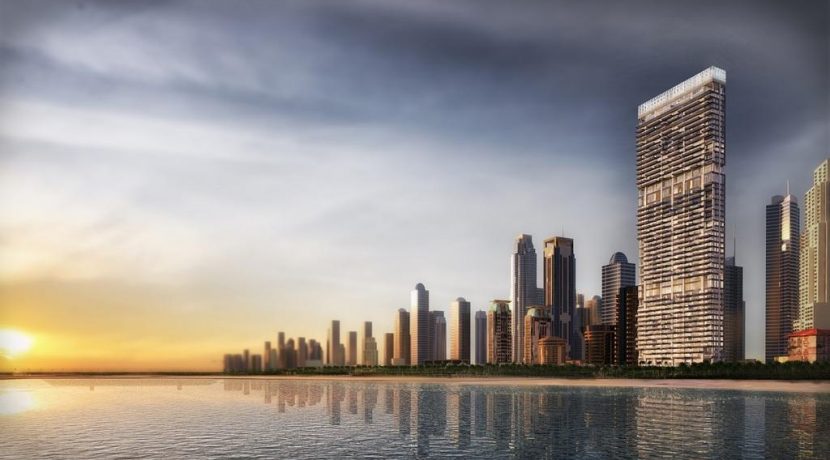Landlords of residential properties in Dubai are increasingly upgrading and reinvesting in their old properties to keep pace with the large volume of new supply being handed over across the city. Unless they do this and offer incentives, they stand to lose tenants who are now opting to live in brand new and professionally managed properties.
“With so many new communities opening on a monthly basis that are not only brand new but competitively priced, landlords in older communities are having to make upgrades to compete with newer, more pristine units in order to stand out. Any property for rent should be frequently maintained and checked and this is why property management plays a key role in the secondary market and securing a good quality tenant. In some cases, tenants will have a pre-requisite that the property is professionally managed and maintained by a real estate company,” says Ashley Hawthorne, property management and leasing manager, Espace Real Estate.
Older villa communities such as Emirates Living and Arabian Ranches are seeing a lot of landlords upgrade fixtures and fittings and basic landscaping of the gardens. Properties are being cleaned well, painted, repairs are done, gardens are looking good, tiles are replaced, grouting is being re-done, etc.
“And equally a large proportion of landlords in apartment developments such as Jumeirah Beach Residence where the properties have been rented in excess of 5 years, the attractions of modern, local amenities or the beach will not be enough to draw in tenants if the property itself is poorly maintained or outdated,” adds Hawthorne.
“Properties that require maintenance or upgrading are being left behind by moving tenants in favour of better quality property currently available,” observes Mario Volpi, sales manager, Engel & Volkers.
There seems to be greater tenant interest in property management services. “As well as looking after the landlords’ property for them through inspections, reporting and deposit protection [ensuring that any previous tenant will need to be accountable for any damage they cause], a lot of tenants are actively looking for managed properties to rent as it gives them much more peace of mind,” reckons Lewis Allsopp, CEO, Allsopp & Allsopp.
According to Asteco’s Q2 report, Duabi witnessed an overall quarterly decrease in apartment and villa rents of 3 per cent and 2 per cent respectively, while annual declines were more prominent at 12 per cent and 10 per cent.
Compared to 2017, the highest apartment rent drops were recorded in Jumeirah Village (16 per cent), followed by JBR with 15 per cent and Jumeirah Lakes Towers, Deira and Discovery Gardens with 14 per cent each. As for villa rents, Jumeirah Park and Jumeirah Village showed the most pronounced annual decrease at 15 per cent, followed by Arabian Ranches with 11 per cent, estimates Asteco.
“Vacancy levels across multiple projects rose due to the supply of additional inventory. However, properties with proactive management and maintenance teams succeeded in maintaining steady occupancy rates, while landlords offering discounts and additional incentives also achieved solid tenant retention. Over the next quarter, further gradual but consistent softening in rents for all asset classes is expected,” comments John Stevens, managing director, Asteco.
Landlords are having to be competitive across all communities. “The more inland locations are having to compete more aggressively due to lack of other amenities such as the beach, etc,” adds Volpi.
“If you consider a new community such as Hayat Townhouses in Town Square, where there are multiple new handovers, we are seeing some innovative incentive schemes to help landlords get new tenants in quickly. These include not only multiple cheques or monthly payment installments but also a month free of rent. In the older, established communities such as Arabian Ranches, tenants are prepared to move from very close proximity to their current home to, for example, neighbouring communities such as Arabian Ranches 2, Mira and Hayat, because these are brand new and cheaper. Hence, we are advising landlords in older properties to be more flexible and offer rent reductions to avoid losing a good tenant and periods of non-occupancy,” says Hawthorne.
Similar to developers offering incentives on off-plan sales, landlords are also offering rental incentives such as short-term leases, waiver on security deposits, including utilities such as chilled water, payments in multiple cheques, white goods included in the contract and rent-free periods of one or two months to attract tenants.
“Rental prices have been reducing in recent months but dropping asking prices are not necessarily the only option left to landlords in order to attract tenants. Once the tenant has been sourced, the landlord often agrees to accept a lower rental level at the point of offer but sometimes landlords use the attraction of a greater number of cheques in order to keep the agreed rent higher than the offers received,” says Volpi.
“Certain landlords are reacting faster to the market trend than others. There are landlords [single-owned buildings] who are prepared to have vacant properties in anticipation of the market recovering whereas individual owners with mortgages have a greater need for rental income,” concludes Stevens.
All rights reserved to the initial publisher for Khaleej times.
Collected and published by Arms &McGregor International Realty® editorial team. Get in touch with us at [email protected]

